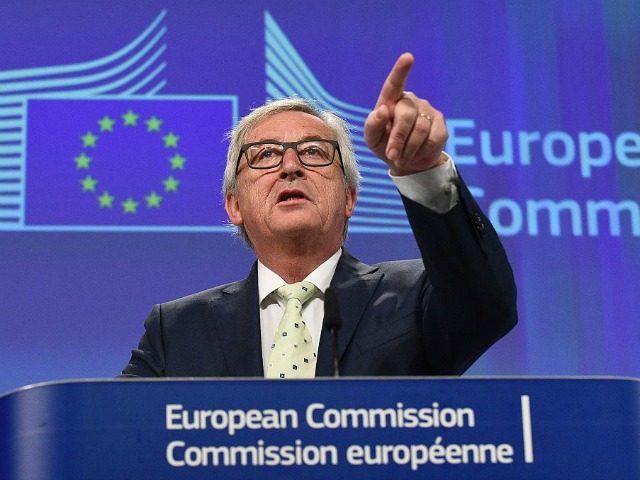The President of the European Commission will not stand for a second term so he can drive a hard Brexit deal and not be beholden to elected MEPs’ approval, sources claim.
Members of the European Parliament (MEPs) approved Jean-Claude Juncker’s premiership in 2014, despite strong opposition from Britain.
A European Union (EU) source told The Times his decision not to stand again was intended to strengthen his hand in the up-and-coming Brexit talks.
It is claimed Mr. Juncker will be more independent and powerful as president because he will not be beholden to elected MEPs’ approval and could, therefore, afford to be tough on Britain and get the “right deal” for the EU.
He made the revelation that he would not run in a second election to a German radio station, as well as giving his views on the direction of talks.
“The British are going to succeed, without too much difficulty, to divide the 27 other EU countries,” he said. “The British know very well how to achieve this. You promise one thing to state A, another to state B and something else to state C and you end up with no united European front.”
Mr. Juncker is a committed federalist who wants deeper integration within the bloc. During former Prime Minister David Cameron’s ‘renegotiation’, the Commission president refused to give the UK a significantly better deal, arguably pushing many voters towards supporting Brexit.
Two of his key allies in the European Parliament have recently expressed concerns that Brexit and the rise of populism and nationalism could threaten the EU’s very existence.
Guy Verhofstadt, the EU’s chief Brexit negotiator, admitted last week the bloc faces an “existential crisis” and could “disappear” due to the rise of populism and nationalism.
Martin Schultz, the former president of the European Parliament, now vying to be Germany’s next chancellor, also said last week that populism is a “virus” that “could lead to the end of the European Union”.
Both men advocated deeper integration and giving more power to the EU, rather than returning it to nation states, as a solution.

COMMENTS
Please let us know if you're having issues with commenting.